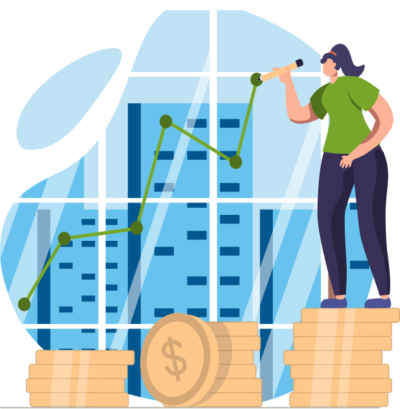Initial Public Offering
An INITIAL PUBLIC OFFERING or IPO is the very first sale of stock issued by a company to the public. Prior to an IPO the company is considered private, with a relatively small number of shareholders made up primarily of early investors (such as the founders, their families and friends) and professional investors (such as venture capitalists or angel investors).


What is an IPO?
An INITIAL PUBLIC OFFERING or IPO is the very first sale of stock issued by a company to the public. Prior to an IPO the company is considered private, with a relatively small number of shareholders made up primarily of early investors (such as the founders, their families and friends) and professional investors (such as venture capitalists or angel investors).
The public, on the other hand, consists of everybody else – any individual or institutional investor who wasn’t involved in the early days of the company and who is interested in buying shares of the company. Until a company’s stock is offered for sale to the public, the public is unable to invest in it.
You can potentially approach the owners of a private company about investing, but they’re not obligated to sell you anything. Public companies, on the other hand, have sold at least a portion of their shares to the public to be traded on a stock exchange.
This is why an IPO is also referred to as “Going Public.”
Start your
investment journey
In just 3 easy steps.
Why have an IPO?
Why go public, then? Going public raises a great deal of money for the company in order for it to grow and expand. Private companies have many options to raise capital – such as borrowing, finding additional private investors, or by being acquired by another company. But, by far, the IPO option raises the largest sums of money for the company and its early investors.
Being publicly traded also opens many financial doors: Because of the increased scrutiny from analysts and investors, public companies can usually enjoy better (i.e. lower) interest rates when they issue debt. Moreover, as long as there is market demand, a public company can issue more stock in a so-called secondary offering. Thus, mergers and acquisitions are easier to arrange because stock can be issued as part of the deal.
For investors, trading in the open markets means liquidity. If you are a shareholder of a private company, it is very difficult to sell your shares, and even more difficult to value your shares. A public company trades on a stock market, with ready buyers and sellers and known price and transaction data. The stock market is therefore referred to as the secondary market, since investors are buying and selling stock from other public investors and not from the company itself. Public markets and liquidity also makes it possible for a company to implement benefits like employee stock ownership plans (ESOPs), which help to attract top talent.

Some of the largest IPO’s to date are:
Pros:
- A large, diverse group of investors to raise capital
- Gives the company a lower cost of capital
- Increase the company’s exposure, prestige, and public image, which can help the company’s sales and profits
- Public companies can attract and retain better management and skilled employees through liquid equity participation (e.g. ESOPs)
- Facilitating acquisitions (potentially in return for shares of stock)
- Raises the largest amount of money for the company compared to other options
Cons:
- Company becomes required to disclose financial, accounting, tax, and other business information
- Significant legal, accounting and marketing costs, many of which are ongoing
- Increased time, effort and attention required of management for reporting
- Risk that required funding will not be raised if the market does not accept the IPO price, sending the stock price lower right after the offering
- Public dissemination of information which may be useful to competitors, suppliers and customers
- Loss of control and stronger agency problems due to new shareholders, who obtain voting rights and can effectively control company decisions via the board of directors
- Increased risk of legal or regulatory issues, such as private securities class action lawsuits and shareholder actions
Is Buying IPO a good option?
For investors in general, it pays to be careful when investing in an IPO.
Most importantly, the company and underwriters have control over the timing of an IPO and will try to take the firm public under the most opportune circumstances. This could include during a rising or bull market, or after the firm posts very favorable operating results.
A higher price is great for the company and bankers, but it can mean the investment potential in the future is less bright.
The shares of many companies surge above the IPO price during the first day of trading, particularly those considered “hot.”
A great strategy to consider may be to buy into an IPO later in the secondary market after the excitement has died down. A stock that falls in value following an IPO could indicate a pricing miscue by the underwriter, or potentially a lower price to invest in a solid company.
An IPO usually refers to selling shares to the public for the first time. But a company can be taken private (such as by a private equity firm) and then be taken public again, which is also an IPO. This has occurred with Burger King several times.

Have questions? We are here!
Discover world’s best stocks & stock baskets to invest in from India
